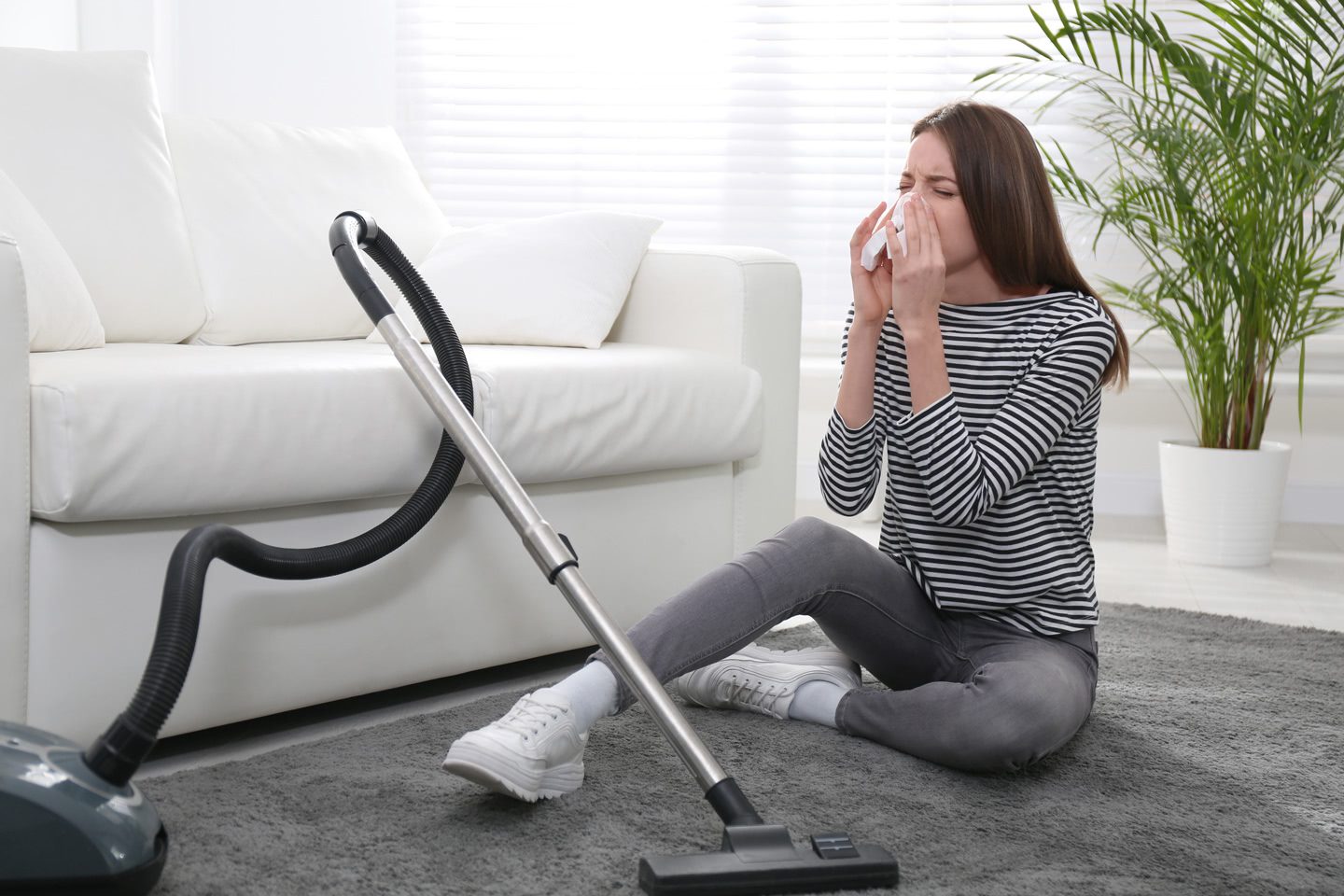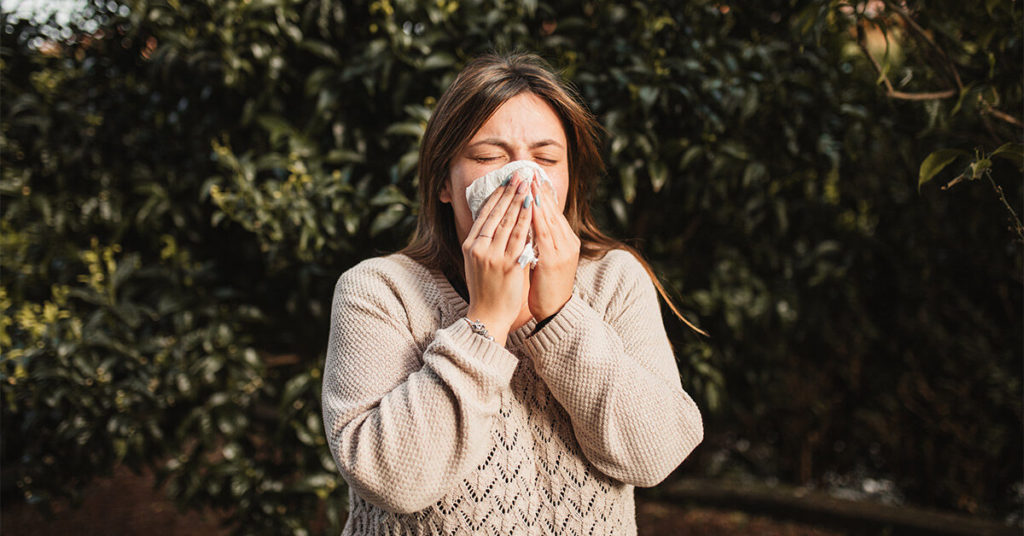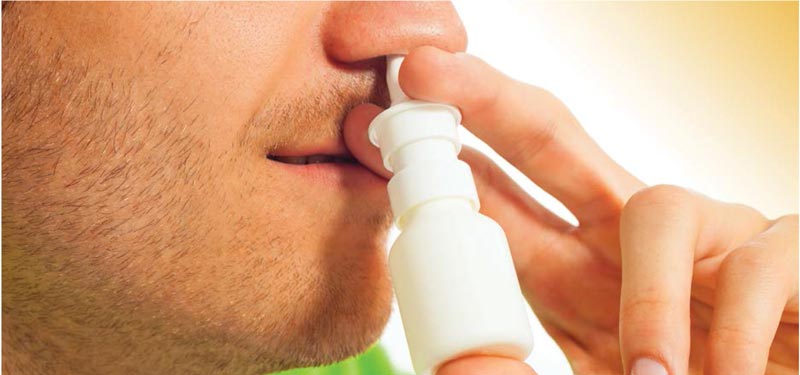Allergic Rhinitis, or hayfever, is an acute allergic reaction characterized by nasal congestion, itching, sneezing, rhinorrhea, and sore throat. Many allergens, such as pollen, dust mites, pet dander, insects, and molds, induce these reactions. Even if we cannot cure Allergic Rhinitis, we can still soothe its symptoms with medication! However, the best solution for the condition is lifestyle changes! Please read on for more information!

How does Allergic Rhinitis occur?
When you breathe in the tiny particles found in air, called allergens, through your respiratory system, your immune system reacts by releasing a natural substance called Histamine. However, if you are hypersensitive to allergens, your body produces excessive Histamine, causing an allergic reaction. This allergic response causes inflammation to the membranes of your nose, throat, and eyes! Examples of triggering allergens include:
-
Dust mites that live in your carpets, drapes, bedding, and furniture.
-
Pollen from trees, grass, flowers, and weeds.
-
Pet dander.
-
Mold spores.
-
Cockroach fecal matter.
When does Allergic Rhinitis occur?
Seasonal allergies occur in the spring, early fall, and summer when trees, flowers, and weeds bloom, causing pollen to proliferate. Perennial allergies result from allergens throughout the year; therefore, they can occur anytime!
What are the symptoms of Allergic Rhinitis?
Hayfever symptoms include:
-
Nasal stuffiness, sneezing, and excessive runny nose.
-
Itchiness in your nose, throat, and eyes.
-
Headache, sinus pain, and dark circles under your eyes.
-
Increased mucus in your nose and throat.
-
Fatigue and a general feeling of discomfort.
-
Sore throat from mucus dripping down your throat.
-
Wheezing, coughing, and difficulty in breathing.
How is Allergic Rhinitis diagnosed?
Your medical practitioner will carry out a blood test called an immunoglobulin E (IgE) test to detect the type of allergy that you have. In addition, your doctor may also do a skin prick test to identify the allergen causing the allergic reaction.
How is Allergic Rhinitis treated?
Fortunately, many medications are available in various forms to relieve the uncomfortable symptoms of your allergic reaction. However, you should see a doctor before buying any medicine. Examples of allergy medications are listed below:
Antihistamines: They work by blocking the Histamine that your body releases during an allergic response. It would be best if you avoid alcohol consumption and driving when you take them. They include:
-
Loratadine (Claritin).
-
Cetirizine (Zyrtec).
-
Fexofenadine (Allegra).
-
Levocetirizine (Xyzal).

Decongestants: These medications relieve congestion in your nose and sinuses. They include:
-
Afrin nasal spray.
-
Phenylephrine nasal spray (Neo-Synephrine).
-
Pseudoephedrine (Sudafed).
Corticosteroid nasal sprays: These sprays decrease inflammation and other symptoms of hay fever. The common nasal sprays are Flonase, Nasacort and Rhinocort.
Leukotriene inhibitors: During an allergic reaction, your immune system also releases leukotriene, which causes inflammation and allergy symptoms. A common leukotriene inhibitor is montelukast (Singulair).
Immunotherapy: This treatment helps your body to develop immunity against allergens through injections with a small number of allergens.

How can you prevent Allergic Rhinitis?
Lifestyle changes can help you deal with your allergic reactions. You can also relieve hay fever symptoms by avoiding possible allergens as much as possible. You can follow these tips:
-
Avoid touching your face and rubbing your nose.
-
Close the windows in your home and car during the spring, summer, and early fall when pollen counts are higher.
-
Cover pillows and mattresses in dust mite covers.
-
Please keep your pets away from couches and beds and close your bedroom doors to prevent them from entering.
-
Put filters in your vacuum cleaner and air conditioner to diminish the number of allergens in the air.
-
Wash your hands often, especially after playing with your pets.
-
Wear a hat and sunglasses to protect your eyes from pollen when you are outside. Also, change your clothes when you come indoors.
I hope you learned everything you needed about hayfever and how you can treat it! Please share your comments below!




